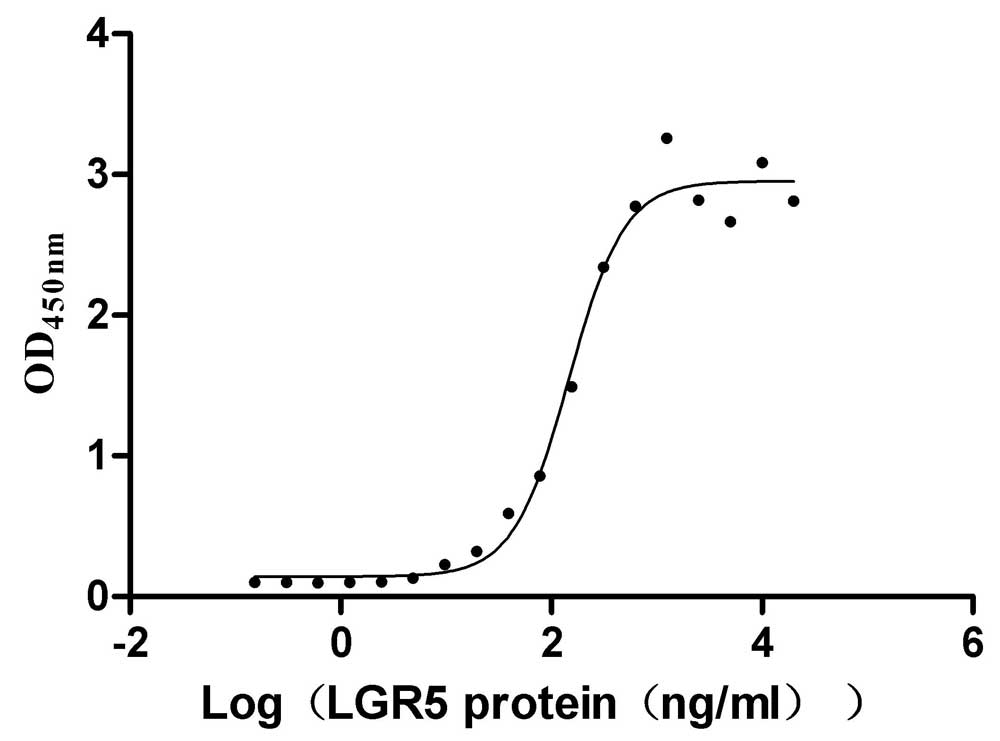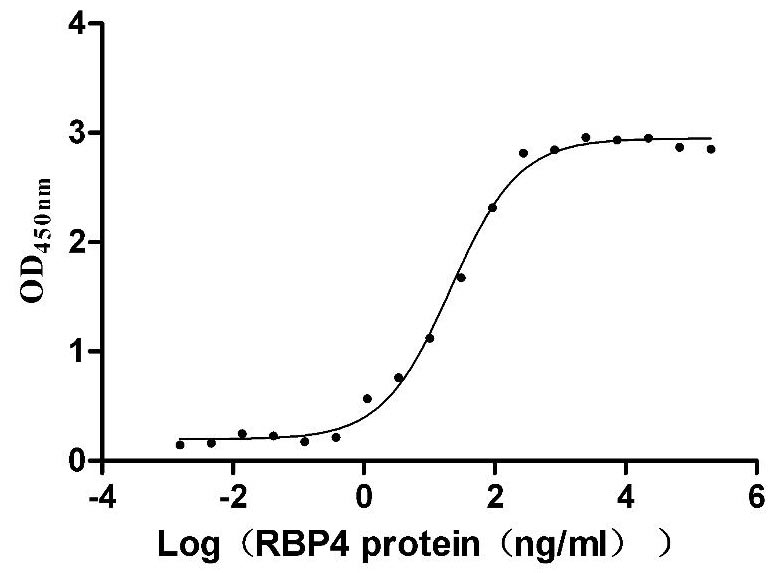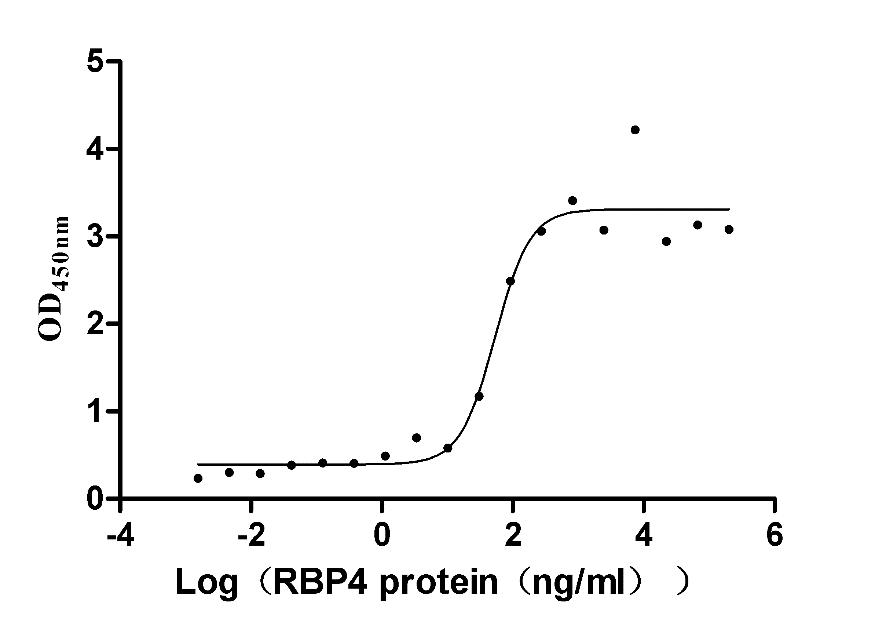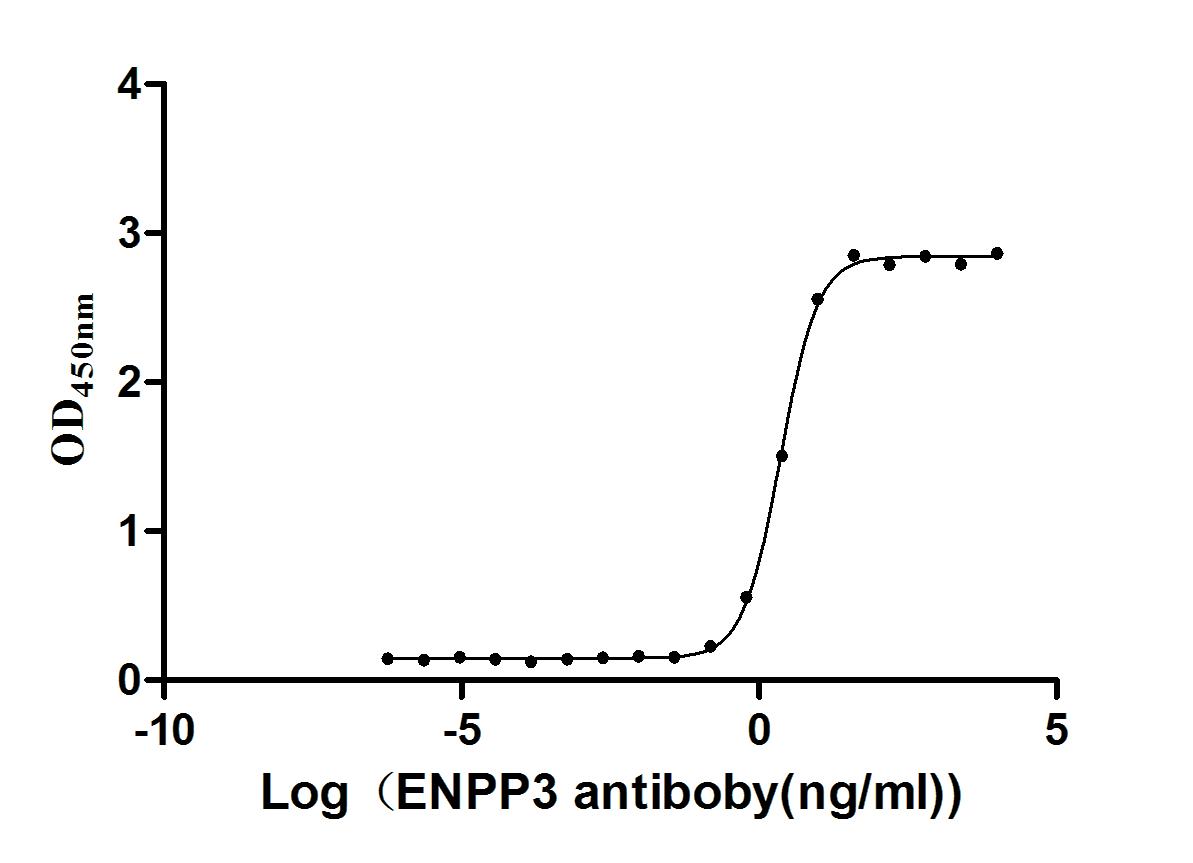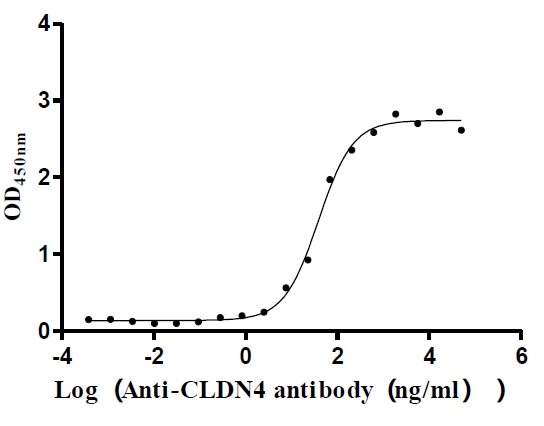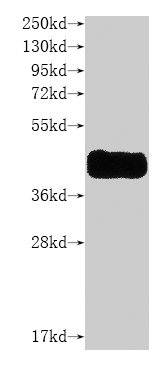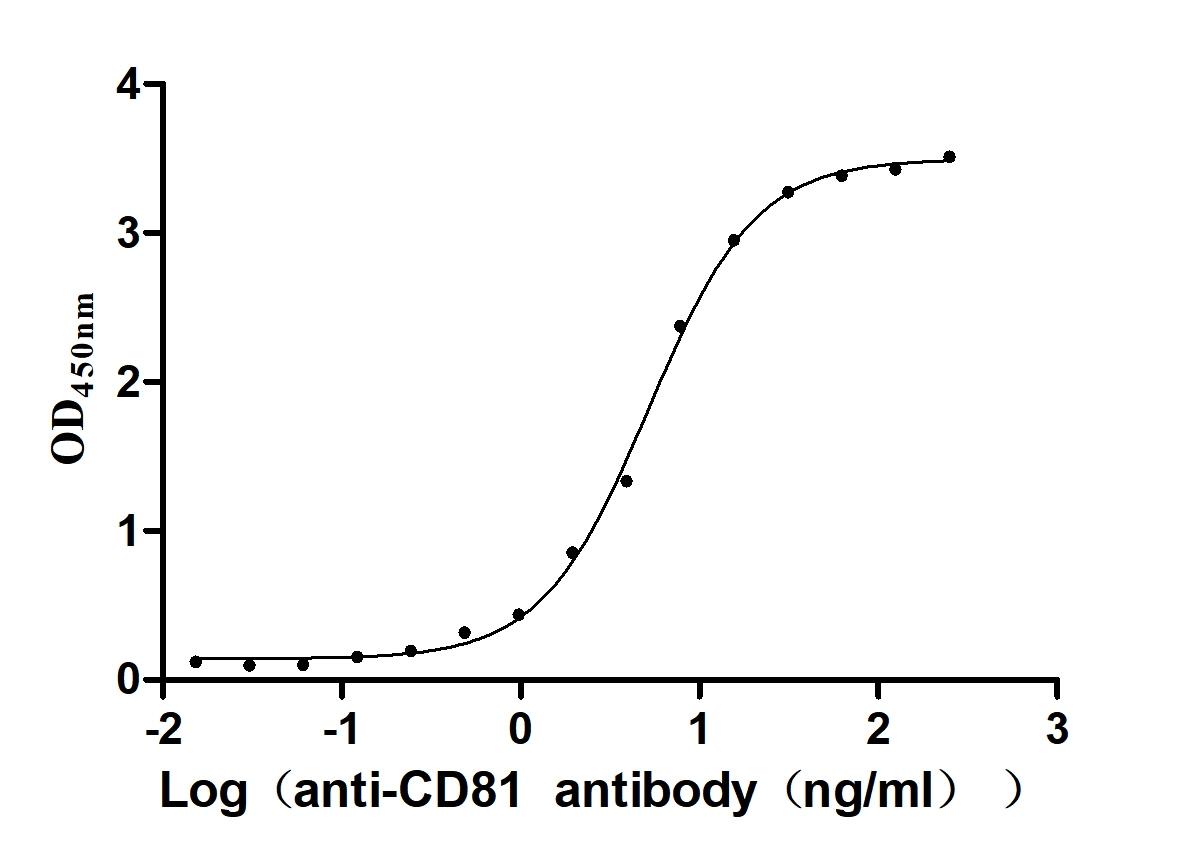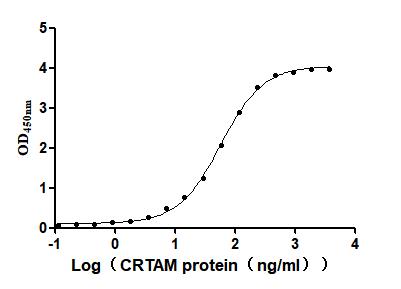Recombinant Mouse 1-phosphatidylinositol 4,5-bisphosphate phosphodiesterase zeta-1 (Plcz1)
-
中文名称:小鼠Plcz1重组蛋白
-
货号:CSB-YP815678MO
-
规格:
-
来源:Yeast
-
其他:
-
中文名称:小鼠Plcz1重组蛋白
-
货号:CSB-EP815678MO
-
规格:
-
来源:E.coli
-
其他:
-
中文名称:小鼠Plcz1重组蛋白
-
货号:CSB-EP815678MO-B
-
规格:
-
来源:E.coli
-
共轭:Avi-tag Biotinylated
E. coli biotin ligase (BirA) is highly specific in covalently attaching biotin to the 15 amino acid AviTag peptide. This recombinant protein was biotinylated in vivo by AviTag-BirA technology, which method is BriA catalyzes amide linkage between the biotin and the specific lysine of the AviTag.
-
其他:
-
中文名称:小鼠Plcz1重组蛋白
-
货号:CSB-BP815678MO
-
规格:
-
来源:Baculovirus
-
其他:
-
中文名称:小鼠Plcz1重组蛋白
-
货号:CSB-MP815678MO
-
规格:
-
来源:Mammalian cell
-
其他:
产品详情
-
纯度:>85% (SDS-PAGE)
-
基因名:
-
Uniprot No.:
-
别名:Plcz1; 1-phosphatidylinositol 4,5-bisphosphate phosphodiesterase zeta-1; EC 3.1.4.11; Phosphoinositide phospholipase C-zeta-1; Phospholipase C-zeta-1; PLC-zeta-1
-
种属:Mus musculus (Mouse)
-
蛋白长度:full length protein
-
表达区域:1-647
-
氨基酸序列MESQLHELAE ARWFLSKVQD DFRGGKINVE ITHKLLEKLD FPCHFAHVKH IFKENDRQNQ GRITIEEFRA IYRCIVHREE ITEIFNTYTE NRKILSENSL IEFLTQEQYE MEIDHSDSVE IINKYEPIEE VKGERQMSIE GFARYMFSSE CLLFKENCKT VYQDMNHPLS DYFISSSHNT YLISDQILGP SDIWGYVSAL VKGCRCLEID CWDGSQNEPI VYHGYTFTSK LLFKTVVQAI NKYAFVTSDY PVVLSLENHC SPGQQEVMAS ILQSTFGDFL LSDMLEEFPD TLPSPEALKF KILVKNRKVG TLSETHERIG TDKSGQVLEW KEVIYEDGDE DSGMDPETWD VFLSRIKEER EADPSTLSGI AGVKKRKRKM KIAMALSDLV IYTKAEKFRN FQYSRVYQQF NETNSIGESR ARKLSKLRVH EFIFHTAAFI TRVYPKMMRA DSSNFNPQEF WNVGCQMVAL NFQTPGLPMD LQNGKFLDNG GSGYILKPDI LRDTTLGFNP NEPEYDDHPV TLTIRIISGI QLPVSSSSNT PDIVVIIEVY GVPNDHVKQQ TRVVKNNAFS PKWNETFTFL IQVPELALIR FVVETQQGLL SGNELLGQYT LPVLCMNKGY RRVPLFSKSG ANLEPSSLFI YVWYFRE
-
蛋白标签:Tag type will be determined during the manufacturing process.
The tag type will be determined during production process. If you have specified tag type, please tell us and we will develop the specified tag preferentially. -
产品提供形式:Lyophilized powder
Note: We will preferentially ship the format that we have in stock, however, if you have any special requirement for the format, please remark your requirement when placing the order, we will prepare according to your demand. -
复溶:We recommend that this vial be briefly centrifuged prior to opening to bring the contents to the bottom. Please reconstitute protein in deionized sterile water to a concentration of 0.1-1.0 mg/mL.We recommend to add 5-50% of glycerol (final concentration) and aliquot for long-term storage at -20℃/-80℃. Our default final concentration of glycerol is 50%. Customers could use it as reference.
-
储存条件:Store at -20°C/-80°C upon receipt, aliquoting is necessary for mutiple use. Avoid repeated freeze-thaw cycles.
-
保质期:The shelf life is related to many factors, storage state, buffer ingredients, storage temperature and the stability of the protein itself.
Generally, the shelf life of liquid form is 6 months at -20°C/-80°C. The shelf life of lyophilized form is 12 months at -20°C/-80°C. -
货期:Delivery time may differ from different purchasing way or location, please kindly consult your local distributors for specific delivery time.Note: All of our proteins are default shipped with normal blue ice packs, if you request to ship with dry ice, please communicate with us in advance and extra fees will be charged.
-
注意事项:Repeated freezing and thawing is not recommended. Store working aliquots at 4°C for up to one week.
-
Datasheet :Please contact us to get it.
靶点详情
-
功能:The production of the second messenger molecules diacylglycerol (DAG) and inositol 1,4,5-trisphosphate (IP3) is mediated by activated phosphatidylinositol-specific phospholipase C enzymes. In vitro, hydrolyzes PtdIns(4,5)P2 in a Ca(2+)-dependent manner. Triggers intracellular Ca(2+) oscillations in oocytes solely during M phase and is involved in inducing oocyte activation and initiating embryonic development up to the blastocyst stage. Is therefore a strong candidate for the egg-activating soluble sperm factor that is transferred from the sperm into the egg cytoplasm following gamete membrane fusion. May exert an inhibitory effect on phospholipase-C-coupled processes that depend on calcium ions and protein kinase C, including CFTR trafficking and function.
-
基因功能参考文献:
- PLCzeta1 is a sperm-borne oocyte activation factor that ensures oocyte activation steps for monospermic fertilization. PMID: 29358633
- analysis of the EF-hand domain in targeting sperm phospholipase Czeta to membrane phosphatidylinositol 4,5-bisphosphate PMID: 26429913
- Human PLCzeta exhibits superior fertilization potency over mouse PLCzeta in triggering the Ca(2+) oscillations required for mammalian oocyte activation. PMID: 24478462
- these results suggest that both PLCzeta- and sperm-mediated Ca2+ release preferentially use an intracellular membranous source of PI(4,5)P2, in contrast to PLCdelta1, which targets PI(4,5)P2 in the plasma membrane. PMID: 22114355
- Data suggest that positively charged residues within the XY linker play an important role in the PLCzeta interaction with PtdIns(4,5)P(2), a crucial step in generating the Ca(2+) activation signal that is essential for fertilization in mammals. PMID: 21730019
- Murine PLCZ1 and bovine PLCZ1 possess species-specific differences in activity and suggest potential differences in the mode of action of the protein between the two species. PMID: 20357268
- results are consistent with sperm phospholipse C zeta as the molecular trigger for development of a fertilised egg into an embryo PMID: 12117804
- purified PLCzeta protein induces Ca(2+) oscillations, indicating that PLCzeta is a proper candidate of the mammalian egg-activating sperm factor PMID: 14701816
- Cell cycle-dependent Ca2+ oscillations are regulated by nuclear targeting of PlCzeta. PMID: 15159452
- Results suggest a mechanism by which phospholipase C zeta originates from an oocyte-penetrating assembly--the sperm perinuclear matrix--to induce mammalian oocyte activation at fertilization. PMID: 15385165
- PLCzeta is the physiological trigger of Ca(2+) oscillations required for activation of development PMID: 15601914
- interaction of PI(3)P and PI(5)P could play a role for negative regulation of PLCzeta PMID: 15790568
- PLCzeta exhibited alternative cytoplasm/nucleus localization during development PMID: 15809052
- These data suggest that the calcium (Ca2+)-dependent features of phospholipase C zeta regulation are essential for it to generate inositol 1,4,5-trisphosphate and Ca2+ oscillations in intact mouse eggs. PMID: 16000311
- The role of X/Y linker region and N-terminal EF-hand domain in nuclear translocation and Ca2+ oscillation-inducing activities of phospholipase Czeta. PMID: 16854985
- narrow spectrum of PLCZ1 activity indicates that it is modulated by tissue-restricted accessory factors PMID: 17933795
- These results support the hypothesis that PLCzeta is the sole mammalian sperm factor and that its linker region may have important regulatory functions during mammalian fertilization. PMID: 18028898
- All PLCZ1 proteins including fish could induce Ca(2+) oscillations in mouse eggs, but the activity was variable in the order of human >> mouse > medaka >> rat, estimated from minimal RNA concentration to induce Ca(2+) spikes. PMID: 18322275
- Overproduction of DAG in PLCzeta-injected eggs can lead to PKC-mediated Ca(2+) influx and subsequent overloading of Ca(2+) stores. PMID: 18471090
- Normal offspring from mouse eggs activated by a phospholipase Czeta protein lacking three EF-hand domains. PMID: 18490860
- Sequestration of PLCzeta into the PN participates in termination of Ca2+ oscillations at the interphase in the mouse 1-cell embryo. PMID: 19230143
显示更多
收起更多
-
亚细胞定位:Nucleus. Cytoplasm, perinuclear region.
-
组织特异性:Highly expressed in postpuberal testis, where expression is sperm cell-specific. Also expressed in brain of both sexes.
-
数据库链接:
KEGG: mmu:114875
STRING: 10090.ENSMUSP00000032356
UniGene: Mm.50808
Most popular with customers
-
Recombinant Human R-spondin-1 (RSPO1), partial (Active)
Express system: Mammalian cell
Species: Homo sapiens (Human)
-
Recombinant Mouse Transthyretin (Ttr) (Active)
Express system: Mammalian cell
Species: Mus musculus (Mouse)
-
Recombinant Mouse Retinol-binding protein 4 (Rbp4) (Active)
Express system: Mammalian cell
Species: Mus musculus (Mouse)
-
Express system: Mammalian cell
Species: Homo sapiens (Human)
-
Recombinant Human Claudin-4 (CLDN4)-VLPs (Active)
Express system: Mammalian cell
Species: Homo sapiens (Human)
-
Recombinant Human C-C chemokine receptor type 8 (CCR8)-VLPs (Active)
Express system: Mammalian cell
Species: Homo sapiens (Human)
-
Recombinant Human CD81 antigen (CD81), partial (Active)
Express system: Mammalian cell
Species: Homo sapiens (Human)
-
Recombinant Mouse Cytotoxic and regulatory T-cell molecule (Crtam), partial (Active)
Express system: Mammalian cell
Species: Mus musculus (Mouse)


